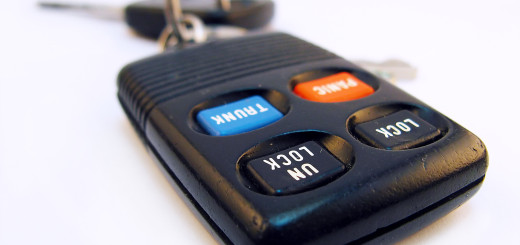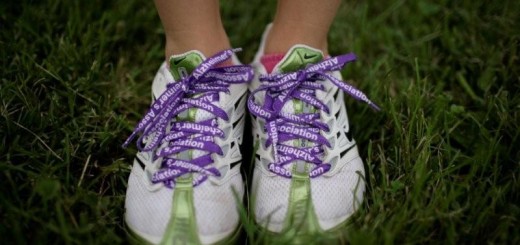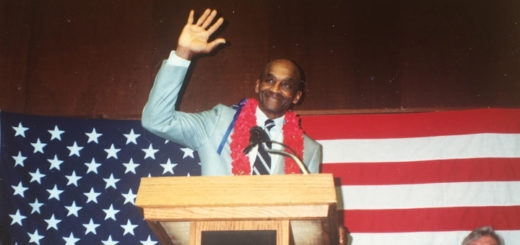Advocate navigates cultural differences
Jasmeen Karan’s mother Bibi was diagnosed with Alzheimer’s in 2014, when Jasmeen was 25. After connecting with the Alzheimer’s Association for support, Jasmeen went on to become the legislative ambassador for Congresswoman Jackie Speier. Alzheimer’s can make caregivers feel as though they are helpless. Jasmeen’s volunteer advocacy work makes her feel like she has the power to do something for her mom.
Difficulties navigating the healthcare system
Jasmeen spoke with the Alzheimer’s Association about her family in a 2017 blog. She shared the story of her parents building a relationship across religious differences. At the time she felt as if her parents had been robbed of their future and she still feels this way.
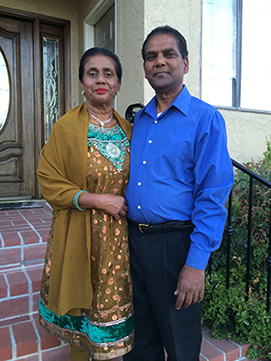
Before Alzheimer’s, Bibi and John, Jasmeen’s parents, were janitors. Due to her illness, Bibi had to retire, but John continues to work. The insurance John receives from his job supplements Medicare.
“My mom was denied long-term care insurance when we applied years ago, due to pre-existing conditions. We are part of the “˜middle-class’ and as a result, make too much money to qualify for low-income help from the government,” said Jasmeen. “My dad is 68 and he can’t retire because then there wouldn’t be enough money to pay for Mom’s care.”
In addition to the doctors visits and other medical care Bibi needs, Jasmeen and John also have to pay for a part-time caregiver. “My Dad and I both work full-time,” says Jasmeen. “There is a period of time where neither of us can be home, so we have someone come and stay with Mom.”
Jasmeen works as healthcare professional with over 15 years of experience in the industry. As a hospital employee, she has served patients. However, it wasn’t until she had to help her mom navigate the system that she felt how patients felt.
It was because of this, and her struggle to find resources her family qualifies for, that Jasmeen decided to become an advocate for the Alzheimer’s Association. “I was frustrated with the healthcare system,” said Jasmeen. “I saw how hard it is for patients to navigate the system so when Jessica Rothhaar from the Alzheimer’s Association reached out and asked me to be an advocate I agreed to help.”
Finding her voice
With the help of staff from the Alzheimer’s Association, Jasmeen and her fellow volunteer advocates meet every couple of months to plan out what they want to ask their legislators.
“The Alzheimer’s Association provides us with the data and opportunities that caregivers and patients need,” said Jasmeen. “You often feel like you’re not in front of the right audience, but when I visit Congresswoman Speier’s office, I feel like I suddenly have a voice. It’s a unique opportunity to be in those offices and have your voice heard.”
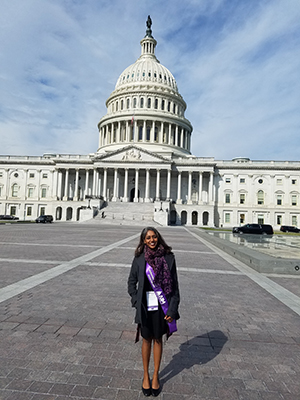
A cultural struggle
California is a diverse state filled with people from different ethnic backgrounds. Because of this, it is important to have advocates from every culture. Jasmeen and her family are an Indian family from Fiji.
“I have yet to see another Indo-Fijian family at advocacy events,” shares Jasmeen. “I always feel like the minority, but I see a lot of people from other ethnicities and we can relate. It just reminds me that I need to do more outreach and awareness.”
In Jasmeen’s community many people don’t know about Alzheimer’s and, like many cultures, there is stigma around the disease. “It’s easy to get in a conflict with your family about what to do and how to share the responsibilities,” says Jasmeen.
“Do we bring Mom to a big 500-person wedding? It will be startling for her. Do we bring Mom to prayer? It’s very quiet and mom can’t sit and be quiet any more. She doesn’t understand.”
Jasmeen’s biggest struggle is finding the balance between her culture and American culture. “Having my own life is nonexistent for me,” says Jasmeen. “Showing up for my family means a lot to me.
“I know that I was not prepared at 25 to discuss end-of-life care scenarios with my dad, but this needed to be done. I wish I’d had more information then.
My parents sacrificed a lot for me, and I feel more useful when I’m doing things. I hope as I raise awareness, we’ll make a change and educate those who could be impacted by the disease or those who already are but need help finding information.”
Making an impact in Congress
Advocates for the Alzheimer’s Association keep their legislators updated about the Association’s ongoing work within their districts. They ask them to support the Association’s policy priorities in Congress.
“I am so grateful that Congresswoman Speier cosponsored the Improving Hope for Alzheimer’s Act,” shares Jasmeen. “I felt like I had some influence there and that I personally made a difference.
“In fact, our chapter recently named Jackie Speier as our 2019 Congressional Dementia Champion, because she shows so much compassion for people living with Alzheimer’s.”
Attending Advocacy Day in Sacramento
Last year, Jasmeen and over 250 advocates from across California came together to meet with state legislators and staff to ask for their help increase Alzheimer’s research funding and increase public health programs related to dementia. “The energy was contagious, and everyone was in purple,” said Jasmeen.
“It was nice to know you’re not the only one out there with a loved one experiencing this. It was amazing hearing everyone’s story and then thinking to yourself, “˜yes, that is exactly what we’re going through.'”

Building a better world
For Jasmeen there are two reasons people should consider becoming an advocate for the Alzheimer’s Association. The first one is because of the impact Alzheimer’s is making on our healthcare system.
“Many people who are diagnosed with Alzheimer’s don’t have long term care insurance,” said Jasmeen. “This means they are going to rely on families and the government for help and there isn’t enough money to cover everyone.”
Another reason she encourages people to become advocates is because it helps you do something that will make a difference. “I love the quote from Ralph Waldo Emmerson, “˜To leave the world a bit better”¦that is to have succeeded,'” said Jasmeen. “For me success is showing up for my family, being a good caregiver and educating the public.
“It’s important to me to let people know, “˜hey, I’m here, my family exists, and this is a hardship for us.’ It’s good to feel like I know what I’m talking about, and that’s thanks to everything I’ve learned from the Alzheimer’s Association.”
Help us change the face of Alzheimer’s by joining us for California Advocacy Day on February 5, 2020 in Sacramento. Register today at tinyurl.com/caadvday2020.
Learn more:





